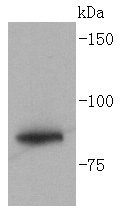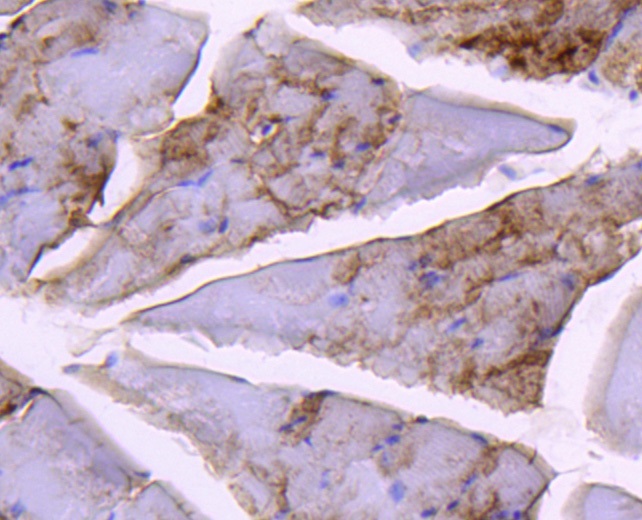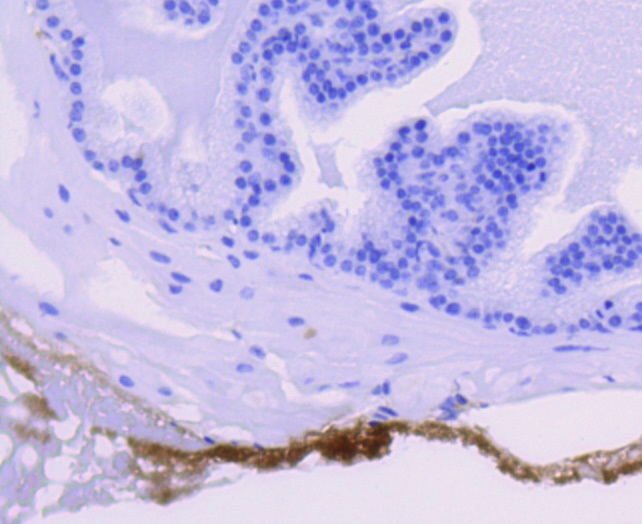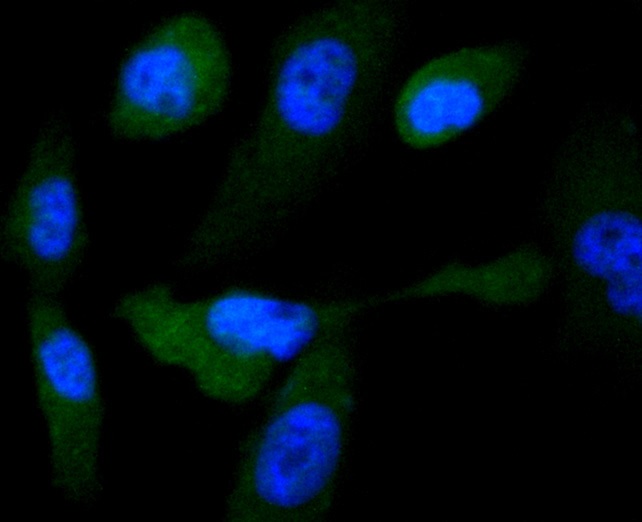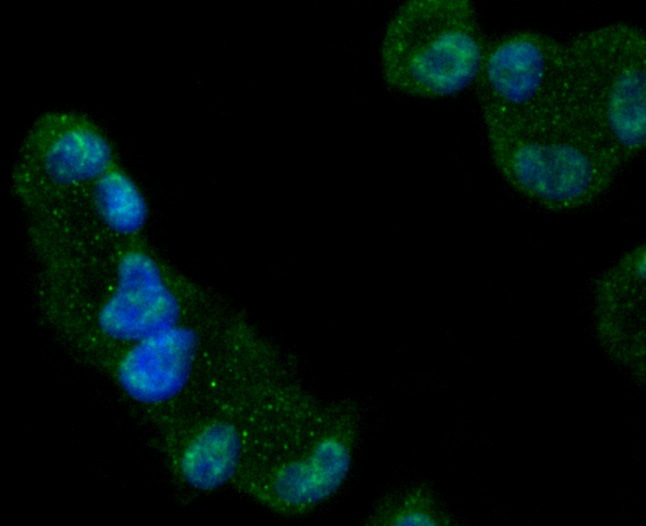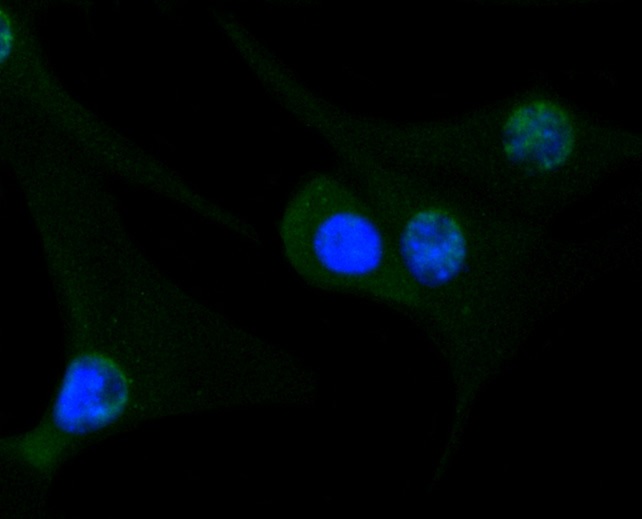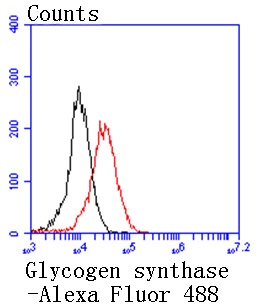Glycogen [starch] synthase belongs to the mammalian/fungal glycogen synthase family of proteins. Two forms of this protein exist, a liver form and a muscle form, both of which have the same function in the glycogen biosynthesis pathway. Glycogen synthase transfers the glycosyl residue from UDP-Glucose to the nonreducing end of α-1,4-glucan. The liver glycogen synthase protein is truncated by 34 amino acids compared to the muscle form. However, these enzymes differ significantly in their amino- and carboxyl-terminal regions. Muscle glycogen synthase serves to fuel muscular activity only and is regulated by muscle contraction and by catecholamines. Liver glycogen synthase mediates blood glucose homeostasis in response to nutritional cues. Defects in the gene encoding liver glycogen synthase results in glycogen storage disease type 0 (GSD0), a rare form of fasting ketotic hypoglycemia.

